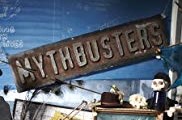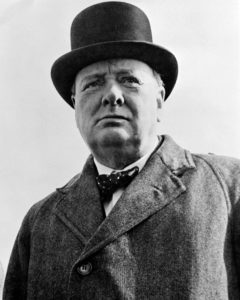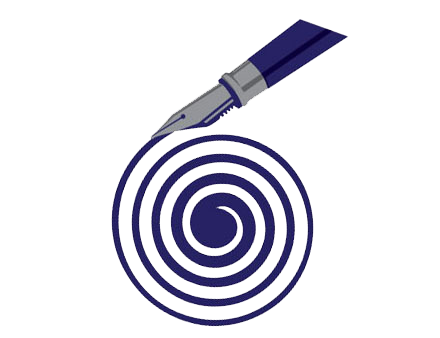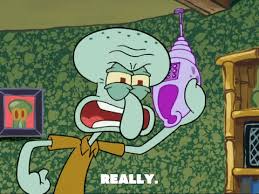
When our twin sons were growing up, they loved the TV show MythBusters. If you never had a chance to see it, the show tested popular urban legends, such as claims that pirates wore eye patches in order to keep their night vision, or that two colliding bullets could fuse together. The other resident guy in our house, my husband, also became an immediate fan. I have to admit, though, that after just an episode or two, I too was hooked. I don’t know if it was due to my latent tomboy tendencies, or just the reality of being the only female awash in a sea of testosterone. At any rate, the show was educational but also very entertaining, and of course all three of my guys particularly enjoyed the experiments involving explosions.
Regrettably, MythBusters is no longer producing new episodes, at least not as far as I can tell from my research. (If anyone has information to the contrary, I’d love to know!) But I’d like to offer a tribute with a series of articles dedicated to grammatical mythbusting: exploding so-called “rules” that in fact . . . are not.
In our last installment, we talked about avoiding the overuse of prepositional phrases, so looking at another issue involving prepositions seems like a good place to start. Our grammar myth to bust today is the injunction against ending a sentence with a preposition (at, by, of, on, to, about, before, after, behind, during, for, from, in, over, under, with, etc.). So, supposedly, you shouldn’t say, and especially not write, sentences such as:
What are you looking at?
John is the person I came with.

British Prime Minister Sir Winston Churchill allegedly dismissed this spurious rule as “nonsense up with which I will not put.” Alas, Churchill’s quote is also a myth, but it effectively demonstrates why there is no solid basis for this rule: slavish adherence to it results in sentences that don’t reflect how English is actually used.
There are two situations that can result in a preposition at the end of a sentence. One is the use of what is sometimes called a phrasal verb–one that combines with another word or two, usually prepositions, to create a meaning different from that of the verb alone. Some common examples are: ask out; add up to; back up; break down; check in; come across; pull off…you get the idea, and I’m sure you could come up with many more of your own. Churchill’s quote-that-wasn’t contains one of these: put up with, meaning “to tolerate”—and the rearrangement of this phrasal verb is what gives the quip its humorous twist.
Consider the following. If you wanted to rewrite these so that they didn’t end with prepositions, you’d have to do a bit of reworking, which could affect a nuance you might want to express:
While you’re on the way, could you please pick me up?
You can always count on Jane to back you up.
Sharon is hoping that David will ask her out.
In the other situation, however, a preposition has indeed been separated from the word that would ordinarily come after it (its object). Our first examples above fall into this category:
What are you looking at?
John is the person (whom) I came with.
These could be rewritten, putting the preposition and its object back together—notice how in the second sentence we have to add whom to serve as the object, which is why I added it to the original in parentheses:
At what are you looking?
John is the person with whom I came.
How do those rewrites sound compared to the originals? Don’t they sound more formal? So this is something to consider. Yes, you can end sentences with prepositions—but always give them a second look to be sure that it’s appropriate to the style and tone of your writing. When in doubt, it’s always better to err on the side of being too formal. And if you’re not sure whether you have a phrasal verb, here’s a list of 200 of them!
So, aren’t you relieved that this is one “rule” that you don’t have to worry much about anymore? Please feel free to comment below about any other grammar myths that you think need busting!











